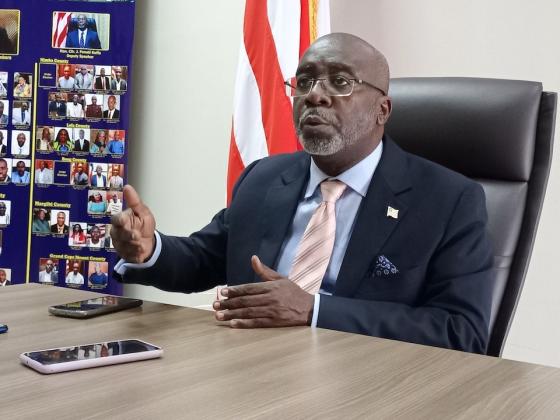Liberia: Universities Must Create Workforce Equipped with ICT Skills

House Speaker Cllr. Fonati Koffa.
…. Deputy Speaker urges Higher Education Commission, tertiary institutions
The National Commission on Higher Education has been urged to develop a comprehensive policy that addresses the integration of ICT into business education across the country.
The Deputy Speaker of the National Legislature, Cllr. J. Fonati Koffa, who made the appeal, argues that business education across universities in Liberia is “so traditional” that it cannot equip students with a transferable skill set that enhances their employability.
Koffa, while citing the Fourth Industrial Revolution, noted that the implementation of such a policy could strengthen the country's economy, and position Liberia as a tech-savvy nation ready to compete on the global stage.
“The world is advancing with massive speed technologically; therefore, it is incumbent upon our institutions of higher education in the country to begin to develop modules that will accommodate the new technological wave in the business.
“A quality education system is an investment in our country’s future prosperity. By creating a workforce equipped with ICT skills, we can attract investment, foster innovation, and promote economic growth,” the Deputy Speaker said. “This will ensure our graduates are competitive in the global job market, ultimately benefiting both our economy and society as a whole.”
Koffa’s remarks came in a speech he gave virtually during the just-ended World Business Angels Week, which among other things bluntly recognized weaknesses in Liberian universities' business courses and emphasized that any failure to embrace technology in today's business world will leave students ill-prepared to compete both locally and internationally.
Koffa said he will continue to push for universities’ curricula to adapt to the demands of the current job market as technology becomes an integral part of almost every industry, and vital skills for business graduates to possess to successfully navigate the challenges of the digital age.
“We will continue to advocate for a curriculum in higher education that accommodates business leaders with a good technical background,” he said. “The Commission on Higher Education, going forward, will have to come up with policies that ensure that universities grow a new generation of business students that have a fundamental understanding of technology.
He highlighted the transformative impact of technology on various industries, such as finance, marketing, and supply chain management, and urged tertiary institutions to adapt their curriculums accordingly.
Liberia, like many other African nations, is witnessing a rapid expansion of mobile and internet connectivity. This presents a unique opportunity for the country to leapfrog traditional development pathways and embrace the digital revolution.
However, Koffa's call for the integration of ICT into business education does not come without challenges.
One major obstacle is the lack of infrastructure and access to technology in many parts of the country.
Meanwhile, Koffa remains optimistic that Liberian universities and the Commission on Higher Education will overcome the obstacle and find a way to make ICT an integrated part of business education in the country.
Also, the Deputy Speaker has challenged investors to approach programs and training that will be in line with the current wave of technological advancements in the business world.
“We have all seen that businesses with advanced technology are the ones that proceed to be top-notch and fortified companies. Therefore higher education leaders should be able to incorporate existing technologies in existing business curricula.”
